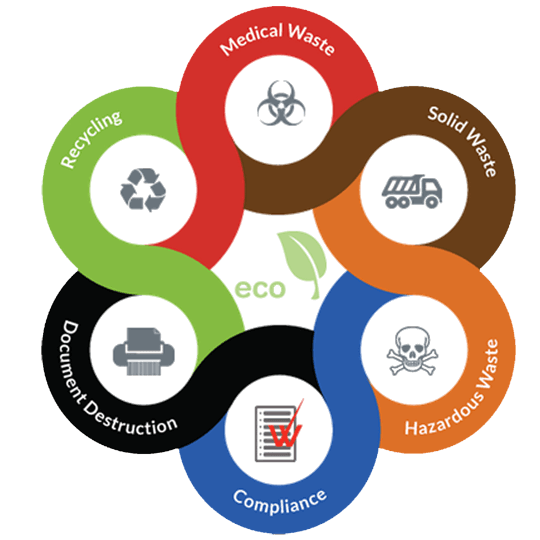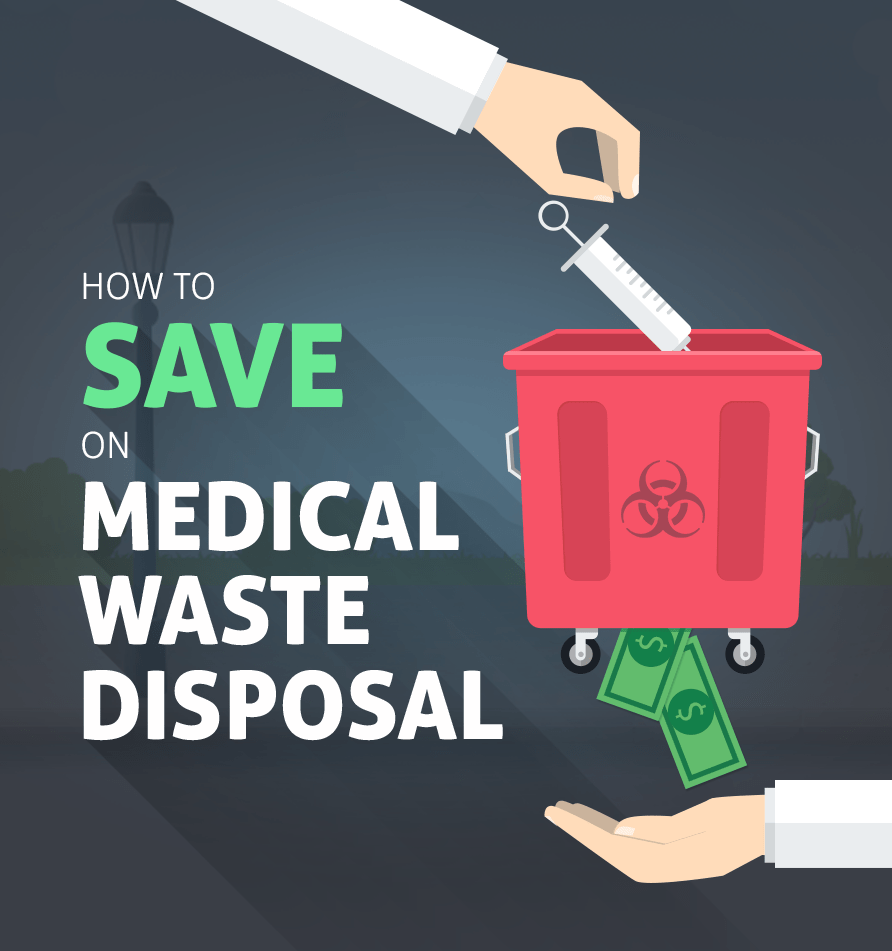Making Certain Safe Handling and Disposal of Medical Waste
Guaranteeing safe handling and disposal of clinical waste is of critical significance in medical care settings. Incorrect monitoring of clinical waste can posture significant threats to the atmosphere, public health, and medical care employees. This requires adherence to rigorous guidelines and protocols for its risk-free handling and disposal. In this intro, we will certainly discover the importance of proper medical waste administration, the risks related to incorrect handling and disposal, in addition to the guidelines and methods that can be executed to guarantee its safe disposal. Additionally, we will talk about the value of training and education for health care professionals in order to preserve a secure and clean health care setting. By adhering to these practices, we can successfully alleviate the prospective risks connected with medical waste.
Importance of Correct Medical Waste Management
Correct medical waste monitoring is of utmost value in making certain the safety and security and wellness of medical care experts, patients, and the public. Clinical waste refers to any kind of waste produced by healthcare facilities during the diagnosis, treatment, or immunization of animals or human beings. This waste can position significant health and wellness threats if not taken care of and disposed of appropriately.
Among the primary reasons that proper medical waste monitoring is essential is to stop the spread of contagious conditions. Medical waste, such as utilized needles, polluted dressings, and biological materials, can bring hazardous microorganisms. Otherwise handled and thrown away correctly, these pathogens can be transferred to medical care employees, individuals, waste handlers, and also the public, leading to the potential break out of diseases.
Furthermore, correct medical waste administration helps shield the atmosphere - medical waste removal. Medical waste has dangerous products, consisting of chemicals, drugs, and contaminated substances. When not managed appropriately, these compounds can infect dirt, water bodies, and the air, presenting a substantial hazard to environments and public health and wellness
In addition, effective clinical waste management guarantees conformity with international standards and local laws. Federal governments and regulative bodies have actually developed standards and procedures to ensure the safe handling, storage space, transport, and disposal of clinical waste. Complying with these guidelines is vital to stay clear of legal consequences and keep the online reputation and trustworthiness of medical care facilities.
Dangers of Improper Handling and Disposal

People can additionally be revealed to these contagious illness if medical waste is not effectively thrown away. For example, if polluted needles or various other sharps are not dealt with in designated puncture-proof containers, they may unintentionally prick individuals, leading to potential infections. Moreover, if clinical waste is not segregated correctly, there is a risk of cross-contamination in between different types of waste, more boosting the possibilities of disease transmission.
Improper disposal of clinical waste can additionally have damaging results on the setting and the public. If medical waste is not treated and dealt with properly, it can pollute water sources, dirt, and air, causing the spread of toxins and conditions. This can have long-lasting consequences on ecosystems and public wellness.
Guidelines for Safe Handling of Medical Waste
Implementing reliable procedures for the secure handling of clinical waste is vital in making sure the protection of medical care experts, patients, and the basic public. These standards are important in minimizing the threats associated with the handling and disposal of clinical waste, such as infections, injuries, and environmental pollution.
Firstly, healthcare centers must develop an extensive waste monitoring plan that sticks to local, national, and global guidelines. This strategy needs to consist of clear directions on waste segregation, packaging, labeling, transportation, and storage. It is essential to separate different kinds of waste, such as sharps, infectious materials, drugs, and non-hazardous waste, to avoid cross-contamination and promote safe disposal.
Furthermore, medical care personnel dig this need to obtain comprehensive training on appropriate waste handling techniques. They ought to be informed on the possible threats of medical waste, the proper use individual safety tools (PPE), and the correct treatments for dealing with, moving, and throwing away various kinds of waste.
Furthermore, healthcare facilities ought to consistently check and examine their waste monitoring techniques to ensure conformity with standards. This includes carrying out routine assessments, examining waste handling treatments, and giving feedback and training to team member.
Effective Techniques for Garbage Disposal
To ensure the safe handling and disposal of clinical waste, it is vital to employ reliable strategies for garbage disposal. Clinical waste can present considerable risks to public wellness and the setting if not dealt with and gotten rid of correctly. Health care facilities and waste monitoring companies must execute ideal approaches to alleviate these risks.
It includes dividing different types of clinical waste based on their features. Medical care centers should supply clear standards and training to personnel participants on exactly how to segregate waste properly.

Furthermore, health care facilities must team up with licensed waste monitoring firms to make sure correct disposal of medical waste. These firms have the experience and devices required to safely dispose and handle of medical waste in compliance with guidelines and finest techniques.
Training and Education And Learning for Medical Care Professionals
Medical care specialists play an important role in making sure the secure handling and disposal of clinical waste with detailed training and education. It is necessary for health care carriers to have a deep understanding of the possible dangers related to medical waste and the proper procedures for its monitoring. By obtaining appropriate training, healthcare professionals can minimize the prospective transmission of contagious diseases, protect against ecological contamination, and secure both themselves and the public.

In addition, training programs should emphasize making use of personal protective devices (PPE) and correct hand health practices when handling clinical waste. medical waste removal service. Health care experts need to know exactly how to correctly make use of and dispose of PPE to shield themselves from prospective direct exposure to hazardous materials. They ought to also be educated on the significance of routine handwashing and the correct usage of hand sanitizers to reduce the spread of transmittable diseases
Continuing education and regular updates on clinical waste monitoring practices are vital for healthcare experts. As guidelines and guidelines advance, it is important to maintain doctor educated concerning any modifications in procedures and ideal techniques. This will guarantee that they stay updated and keep a high standard of safety and security in dealing with and getting rid of of medical waste.
Final Thought
In conclusion, appropriate handling and disposal of medical waste is essential to make sure the security of medical care experts, individuals, and the atmosphere. By adhering to these techniques, we can alleviate the prospective dangers associated with medical waste.
Clinical waste refers to any type of waste generated by medical care facilities throughout the medical diagnosis, treatment, or booster shot of human beings or animals. If medical waste is not segregated properly, there is a threat of cross-contamination between various kinds of waste, additional increasing the chances of illness transmission.
It is vital to divide different kinds of waste, such as sharps, contagious products, pharmaceuticals, and non-hazardous waste, to protect against cross-contamination and promote secure disposal. WasteX Medical Waste Disposal.
To make sure the secure handling and disposal of medical waste, it is necessary to employ efficient strategies for waste disposal. Furthermore, healthcare centers ought to establish a routine waste collection and transport schedule to stop waste build-up and reduce the danger of crashes or contamination.